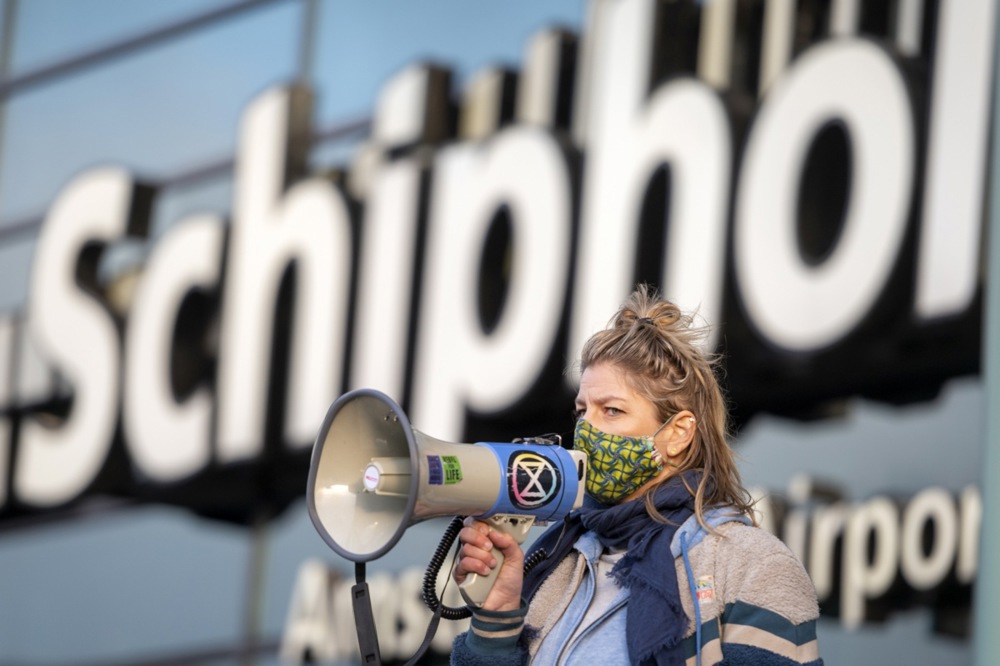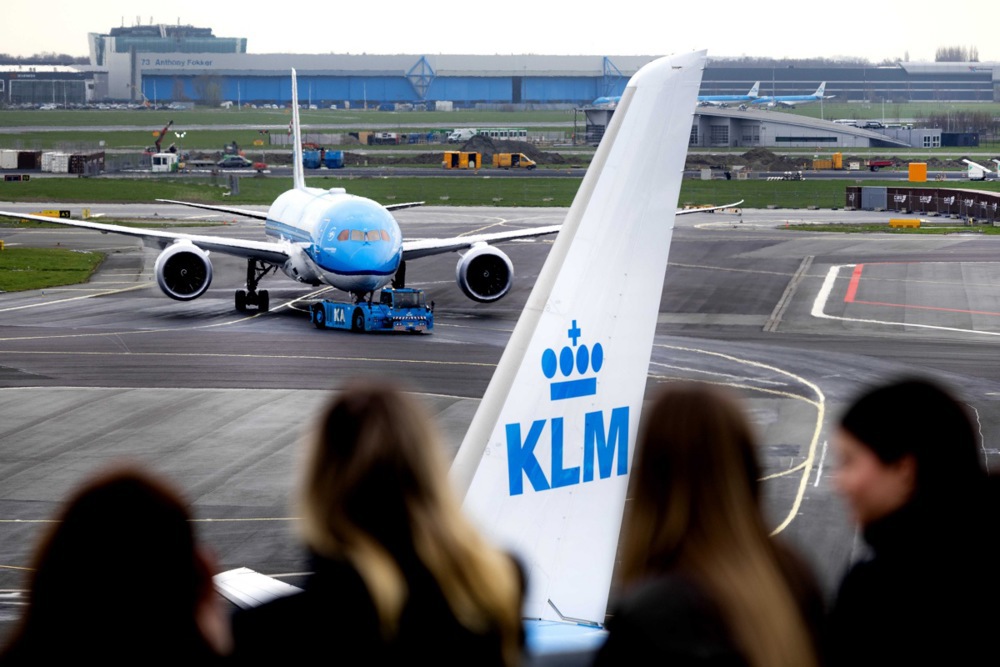Amsterdam’s Schiphol Airport was not allowed to ban radical climate-change activists with Extinction Rebellion (XR), a Dutch judge ruled, which allowed them to target the airport again.
According to the judge, banning the activists from Schiphol Airport for five to 10 years because of prior protests that turned destructive was an unlawful and disproportionate restriction of their right to demonstrate.
Immediately after the ruling on August 29, XR organised a new protest against aviation at Schiphol.
“We thought: This is the moment. We must strike while the iron is hot,” XR spokeswoman Liesbeth Hondelink said.
XR activists went on to spray-paint a cockpit on Schiphol Plaza to announce a new protest they will hold on October 24.
Several were arrested for the act.
XR has staged more than a dozen actions at Schiphol. Sometimes these took place in public areas but they have also involved cutting through fences, defacing property and entering restricted parts of the airport.
The area ban was imposed following an action in which activists blocked KLM’s Flying Blue lounge, having gained access to a travellers-only section of the airport under false pretences.
On March 21, 37 were banned from Schiphol Airport for five to 10 years because of their protest.
In their lawsuit, the XR members claimed their right to demonstrate was being impacted and also complained about their members not being able to fly from the international airport.
The airport argued that, as the owner of the site, it was entitled to restrict the right to protest on safety grounds. The demonstration in question had also already been banned by the local government.
Schiphol did not prove the actions of XR formed a security risk, the judge said, siding with the activists.
The lengthy bans effectively prevented protests at the airport through their “chilling effect”, the judge ruled.
They also severely impacted the activists, who would be barred from flying for five to 10 years — sanctions they could not have foreseen, given the unclear rules and the fact that earlier demonstrations in restricted areas had gone unpunished.
According to the judge, Schiphol was not “just a private domain” but fulfilled an important public function, making it more difficult to deny people access.
“This is another victory for Extinction Rebellion,” the group’s lawyer Willem Jebbink said. He added it was a “razor-sharp ruling”.
Hondelink said: “This ruling is very logical. KLM encourages frequent flyers with a loyalty programme. In times of climate crisis, this is so absurd that civil disobedience demonstrations against it are appropriate and necessary.
“It is ridiculous that Schiphol tried to discourage this with access bans. If Schiphol does not want us to demonstrate behind security, then they should remove those controversial frequent flyer lounges.”
Schiphol stated that it was “considering how this ruling relates to our legal duties and responsibilities, which we will study carefully”.
“Protests at Schiphol are possible, but in our view only at designated locations where we can facilitate them safely, as we have done in the past.”
A court in the Dutch city of The Hague has given what was regarded as a lenient sentence to Ethiopian parents who severely beat their children – because they had a different cultural background. https://t.co/iuOxozibfy
— Brussels Signal (@brusselssignal) July 22, 2025





